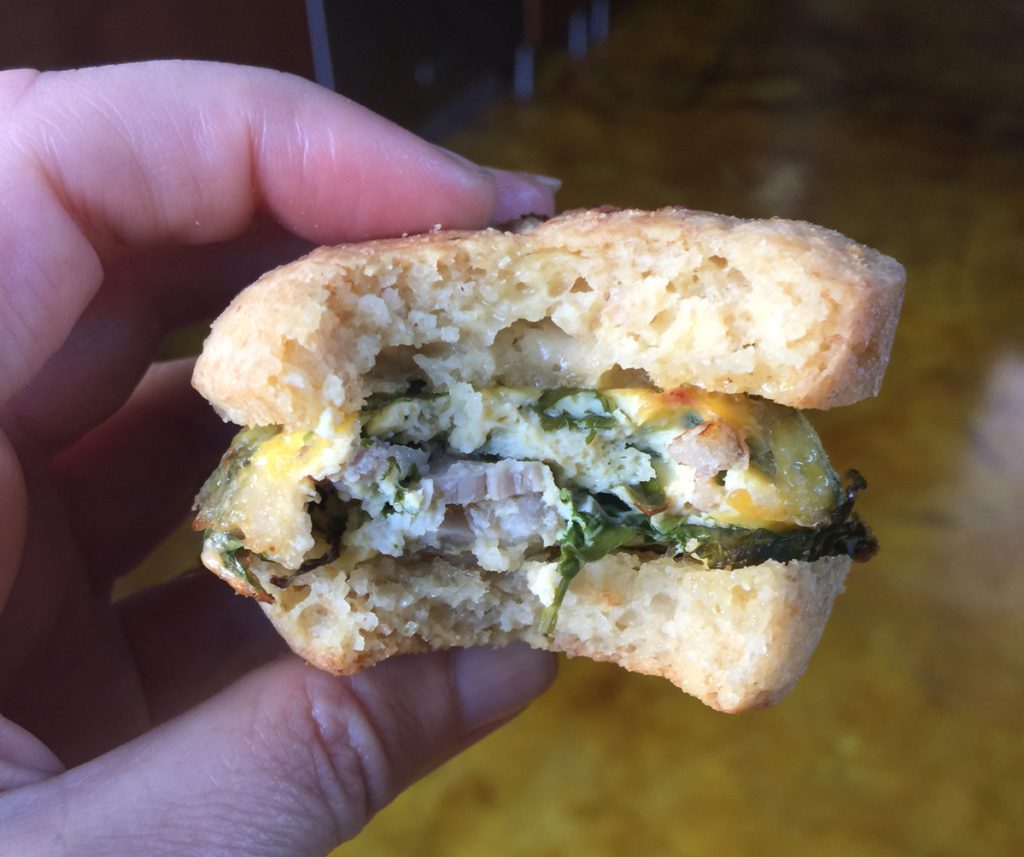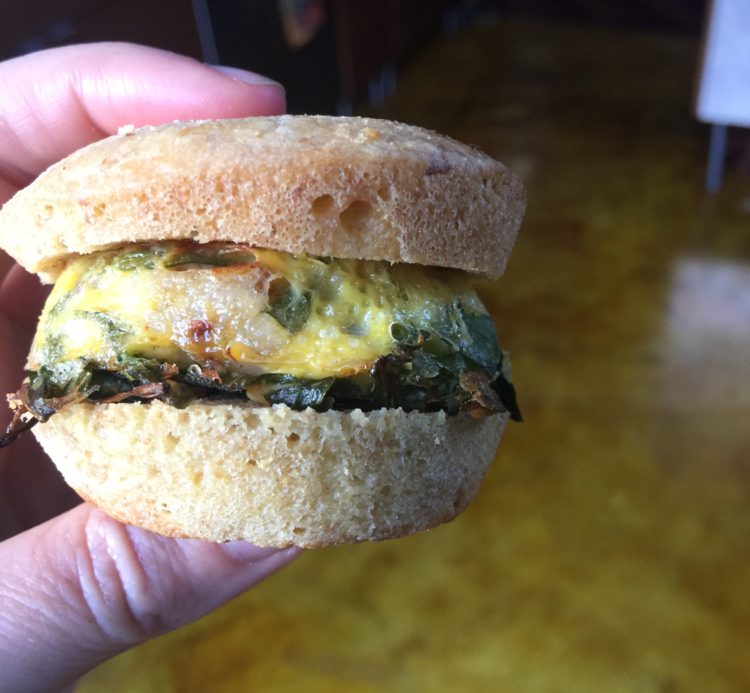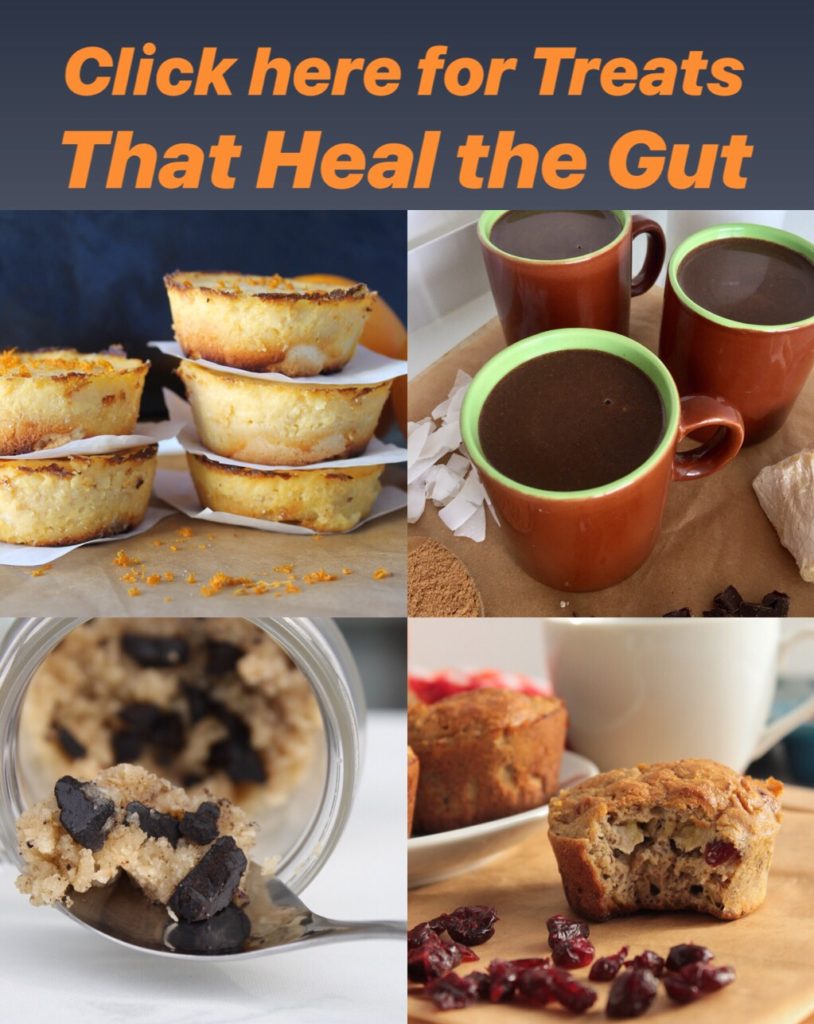The question I’m asked most often by clients and readers is if they’ll ever be able to eat dairy and gluten again?
The answer is a bit complicated but I’m going to educate you about the effects of gluten so you can make that choice for yourself one day. I’ll leave dairy for another day.
The holiday season is full of gluten with all the wonderful baked goods, so it’s important for you to know all the facts now.
I’m presenting this blog in a question and answer format based on the questions I’m asked most often.
1. Will I ever be able to eat gluten again?
It’s possible for some people to fix their digestion so they no longer react to gluten. I did. But there’s more to the story.
Gluten is inflammatory in two ways.
The first way is fixable. Weak digestion means weak stomach acid. Most IBS folks don’t have sufficient stomach acid to properly digest gluten. Those gluten proteins then travel to your small intestine largely undigested where they can feed bad bacteria (in the case of an overgrowth) and cause inflammation and leaky gut. Leaky gut then leads to more food allergies.
Undigested gluten can also clog lymph ducts and cause swelling and gas in the lower belly. This can cause weight gain, brain fog and fatigue.
If you strengthen your digestion then gluten theoretically won’t harm your intestinal lining. But for this to happen you must have strong stomach acid and strong bile production from your liver. To have strong bile flow you must have a healthy, uncongested liver.
Most IBS folks, not only have to work on their stomach acid production, but also on their liver congestion to be able to digest gluten properly.
Back when I healed myself, I focused primarily on detoxifying my liver. This increased my bile flow and stomach acid and I was able to eat gluten with no reaction, discomfort or relapse for 7 years.
But there’s another scenario with gluten.
Some people will never be able to digest gluten without an inflammatory response. This is thought to be due to a genetic predisposition. Some people develop an antibody response to gluten. After this happens once, the body will always produce antibodies to gluten. And this scenario is not fixable.
For these people, eating gluten will lead to major health problems down the line, such as autoimmune disease. Here’s the scary part.
You can fix your digestion to where you don’t react to gluten with typical IBS symptoms, but the inflammation is still happening in the background. It is called silent inflammation because you can’t easily feel it happening. It’s extremely subtle and you need to learn to read the signs.
Reacting to gluten, in a way is a blessing for these antibody producers because at least they know to stay away.
2. What happens if I cheat?
Most people don’t think it’s a big deal to cheat with gluten. But unfortunately it really is. Here’s why.
If you produce antibodies to gluten the silent inflammation can last from 3 to 6 months from just one serving. During that reaction your immune system is attacking the weakest part of your body, which is different for everyone. It can take a decade, but this type of ongoing attack can lead to serious health issues like autoimmune disease or cancer. And people never know what caused it. Your body can be under constant self attack from eating gluten only 2 to 4 times a year.
If you’re in the group that does not produce antibodies, but your gut lining is not fully healed yet, then one cheat can reverse months of good behavior as the inflammatory process restarts. Its’ not going to last for month but long enough to re-damage a mending gut. Not worth it.
I was lucky that I never cheated once on my year-long diet. I was too scared to and in that instance, my fear served me well.
3. How do I know if I’m in group 1 or 2?
So how do you know if you produce antibodies to gluten or not?
It’s hard to know.
There are tell tale signs of inflammation in the body, but they are quite subtle. Most people don’t notice them.
I know for myself, that my eyes get puffy bags underneath them and get itchy and irritated and I tend to put on lots of weight in a short amount of time if my body is inflamed.
For other people, signs may be joint pain, migraines/headaches, fatigue, mood swings, swelling, hives, PMS or something else entirely.
There are tests that check for gluten antibodies, but they can be problematic.
First of all, you have to regularly consume gluten to be tested. This can be harmful for some, causing 6 months of inflammation and/or worsening leaky gut.
Secondly, those tests are not always accurate. You can easily get a false negative.
There’s a more accurate way to check for gluten sensitivity using genetic testing. No gluten consumption required. The test checks for genetic predisposition to gluten sensitivity.
This test is expensive however, at $385.
It’s cheaper and easier to just avoid gluten.
My policy with gluten was to eat it occasionally when I went out, about once a month or so. I can eat it without visible reaction, but after learning more about it I’ve decided to stop completely. Thanksgiving was my last bite. I’m done. It’s just not worth it.
4. What’s about gluten free goods and what’s the best type of wheat to eat?
For those who don’t have a genetic disposition to gluten intolerance, the best type of wheat to eat is non GMO wheat. European wheat is non GMO.
The best American wheat is often called heritage wheat and made by artisinal bakers. It’s expensive but worth it. And sour dough starters make wheat more digestible. But this is only for people who have already healed completely. Not for those still in the healing process.
As far as gluten free replacements for favorite foods like toast, cereal and pasta, I don’t find them particularly healthy. These are highly processed products and should not be part of a healing diet or protocol. Ok as a rare treat, but I prefer grain-free Paleo baked goods as they are much healthier.
Going completely grain free in the beginning stages of healing (first 6 months) is important. The only exception is white rice, which seems to work for some people.
If you are dying for cereal here’s my favorite Paleo replacement made only with coconut. I have it with homemade cashew milk.
5. What to do after an accidental gluten flair (also known as being “glutened”)
There are things you can do to shorten the duration of inflammation from gluten exposure both before and after. So if you’ve accidentally been exposed to gluten, don’t worry.
There’s an enzyme you can take before your restaurant meal that will help minimize the damage. It’s called GlutenEase. You can take it before the meal, just in case you get exposed, and afterwards if you have a reaction.
Other things that minimize the effects of gluten exposure is drinking bone broth, taking probiotics, l-glutamine, deglycerized licorice, drinking marshmallow and peppermint tea, putting 1 tablespoon of collagen in your morning tea and getting lots of sleep and rest. Baths with epsom salt and essential oils also helps your body relax and detox.
6. What if going gluten free doesn’t work?
Here is a big mistake people make.
They go gluten and dairy free and don’t feel any better. Frustrated and depressed, people go back to eating gluten, which just continues the cycle of damage.
Often, going dairy and gluten free is just not enough. The diet needs to be cleaned up a lot more. Also, it takes time (months) to get the effects of gluten out of the system. The gluten enzyme mentioned above can help speed up the process.
To start feeling better you may have to cut out grains, legumes, coffee, processed sugar, corn, soy, gluten free products, processed foods or foods your body is sensitive to.
Your body may be sensitive to fructose or high FODMAP foods. It may be triggered by nuts, eggs, or nightshades. That’s where elimination diets come in to test your reaction to foods that IBS people commonly react to.
Giving up gluten and dairy is just the start, a foundation you must build your personal diet upon. So while being gluten and dairy free is necessary its not enough.
7.Who definitely should NOT be eating gluten?
If you are taking acid reducing medications like PPIs (proton pump inhibitors) then you should not be eating gluten. It will be a problem for you.
If you already have an autoimmune condition, you should never eat gluten, unless you want 3 to 6 months of resulting inflammation.
If you are in the first 6 to 12 months of healing your digestion, you should not eat gluten.
If you are someone who craves gluten like crazy and can’t imagine giving it up, this is a classic sign of gluten intolerance. The addiction/craving is a big symptom of intolerance. You definitely need to give gluten up.
Better choices
Now you see that everyone who eats gluten without symptoms is not necessarily immune to its effects.
Silent inflammation or leaky gut may be in the making. It takes years for the damage to turn into disease or serious symptoms. The silent inflammation could be causing organ damage and when symptoms show up, it’s too late to do anything about it, causing a chronic condition.
We want to eat what everyone else is eating to fit in. But do we also want to fit into this disease model or be on medication for the rest of our lives?
I don’t. I have plenty alternatives when I crave bread and carby comfort.
My favorite is Ottos cassava flour. A great choice for nut-free and coconut-free diets. My second favorite is Simple Mills products. They make waffles, crackers, cookies, cauliflower pizza dough and muffins that are all grain-free.
My favorite is their artisan bread , which uses almond flour and tapioca as the base. I mix with eggs, apple cider vinegar, oil and water and bake in muffin tins. I made this egg muffin sandwich with it this past weekend. Yum. Who needs gluten?

Stop thinking of yourself as deprived and think of yourself as informed. You have information that can save your life and health.That’s powerful. Many people wish they knew this decades ago.
After losing my health once, I value it more than anything. So I make choices that are not always easy but are right for me. What you want to do is up to you, but now you can’t do it without knowing.
 Angela Privin is proof that IBS is NOT an incurable disease or a disease at all. IBS is a body out of balance. It’s an invitation for change. After solving her own IBS mystery more than a decade ago Angela trained as a health coach to help others.
Angela Privin is proof that IBS is NOT an incurable disease or a disease at all. IBS is a body out of balance. It’s an invitation for change. After solving her own IBS mystery more than a decade ago Angela trained as a health coach to help others.
Angela uses both science and intuition to help people figure out what’s out of balance in their body. She works with lab tests, dietary changes, supplementation and nervous system rebalancing. Get help rebalancing your digestive system and solving your IBS mystery here.







Recent Comments